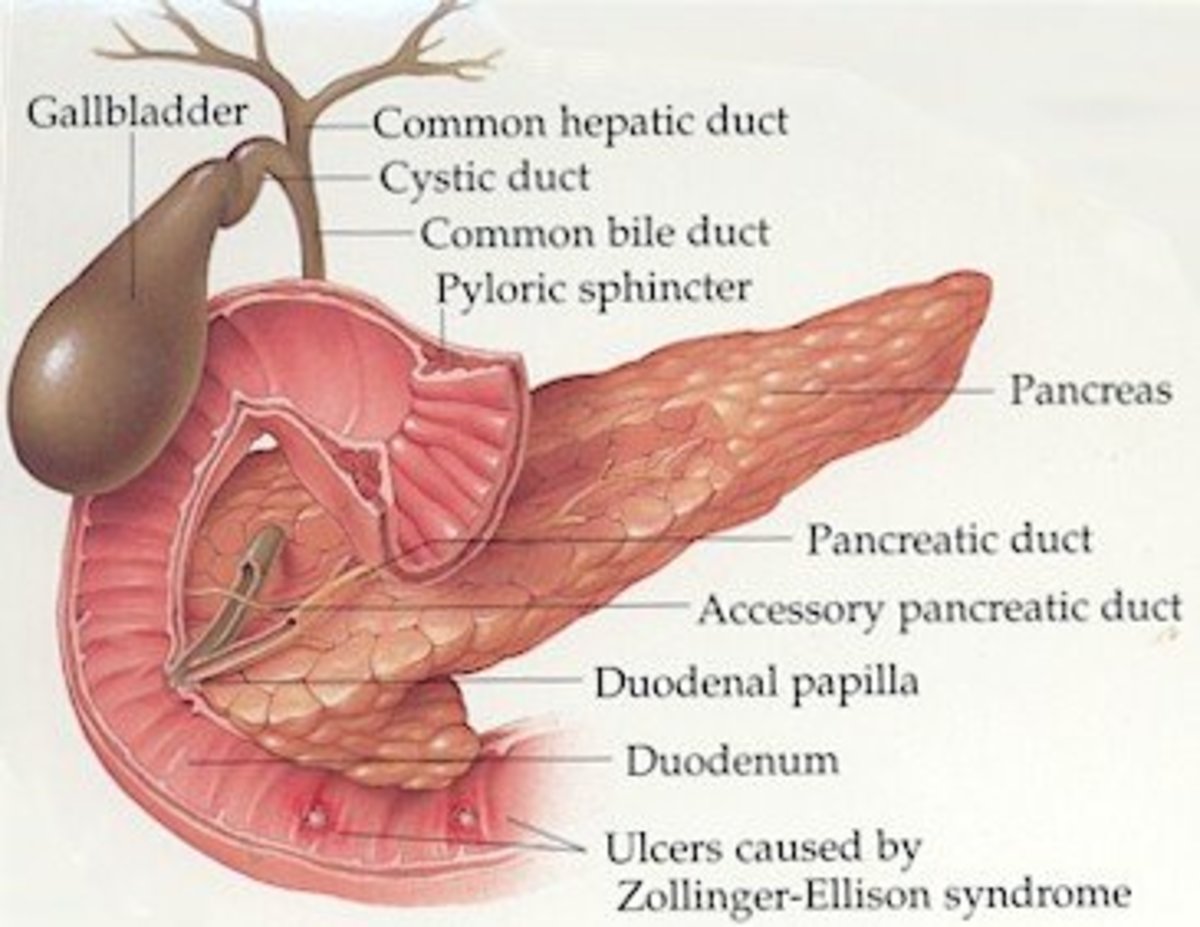Pancreas Health, Why Should I be Concerned?
Once Good Health Allows Us the Freedom to Enjoy Living

Pancreas Health Products
Pancreas Health Is Key to Our Happiness
Before we answer the question of how serious is acute pancreatitis, let’s first put this topic into perspective. How does the pancreas become unhealthy and if it does, what does this mean to your overall health and quality of life experiences?
Pancreatitis is when the pancreas gland becomes inflamed and its metabolic functions become partially to fully ineffective. Not only is this life sustaining metabolic function impaired with acute dysfunction, it is also a very painful experience.
So where is the pancreas located and what’s its role in the bodies overall metabolic function? The pancreas is a gland behind the stomach and below the liver. The pancreas has two main functions. It is responsible for enzyme secretion that aids in the digestion of carbohydrates, proteins and fat. It also works in harmony with the liquid bile your liver produces to assist in digestion as well. The bile is stored in the gall bladder, and is also activated when food is consumed. The liver, pancreas, gall bladder and stomach’s small intestine entry way are very close together. Together these organs perform a very high level metabolic function to regulate energy and food nutrient absorption through the digestive process.
The combination of this bile liquid and pancreas hormonal secretion is absorbed through the small intestinal wall after food has been consumed and activated for digestion at the stomach’s exit and small intestine entry way (duodenum). When the pancreas stops producing these digestive enzymes, or these enzymes are blocked from doing their job in the intestines, all sorts of complex health problems can/do occur.
The second function of the pancreas is the production and release of insulin and glucagon. The release of these two hormones is responsible for maintaining blood glucose metabolism from the foods you consume for the bodies energy. These hormones store and release the calorie energy when needed. When blood sugar is not regulated optimally by the pancreas, then one becomes diabetic.
The enzymes secreted from the pancreas become active when absorbed by the small intestine. However, if the enzymes are not released and held within the gland it becomes inflamed. These trapped secretions then can begin to eat up the inside tissues of the pancreas after one consumes food. At this point, one can bleed internally while the gland begins to experience tissue death.
How does the pancreas get to a state of cannibalizing and destroying itself? Let’s take a look at the statistics to hone in on the main culprit. More cases of pancreatitis are seen in men than women. And it appears that 70% of the pancreatitis cases in the United States are caused from alcohol abuse. And 45% of these patients convert an acute condition to chronic due to the alcohol repeatedly inflaming and scarring the gland. Then the patient experiences varying-to-constant pain in the abdomen and back. In 10-15% of the total pancreatitis cases the cause of the disease is unknown.
There are other ways in which acute pancreatitis occur: Genetics, certain habits and diseases. And in any case or cause, if the pancreatic ducts become blocked during digestion, the enzymes can become trapped within the pancreas. Or if the bile secretion becomes blocked (gall stone blockage) this can be very painful and create other digestive ill-health issues. In either case, you’re going to experience a painful medical condition that requires treatment. Other conditions linked to pancreatitis: Autoimmune problems, damage to ducts through surgery; an accident that damages the gall bladder, or pancreas; and high blood fat levels (hypertriglyceridemia).
Risk Factors and Prevention:
Avoid alcohol, or limit significantly your consumption of alcohol. A low-fat diet will be helpful to include proper medications for fewer and milder attacks if you experience acute pancreatitis. Children with fevers should avoid aspirin; also if a child has a viral illness (to reduce the risk to Reye syndrome). Risk factors for chronic pancreatitis: Alcohol, hereditary conditions (i.e., Cystic fibrosis), gallstone disease, high triglyceride condition and lupus.
So how serious do you think acute pancreatitis is? I’d say if you are experiencing early symptoms of an inflamed pancreas, or have had gall stones, or are a diabetic, I’d say your pancreas health is pretty important stuff to pay attention to. And if you can change your behaviors and habits to never experience pancreatitis, count yourself fortunate. Why is that?
Because once you have pancreatitis it could become chronic after a period of time. Then you are looking at a permanent treatment program for life and possibly a painful and early death.
Can treatment help alleviate and cure the most severe conditions? Of course treatment is going to alleviate much of the discomfort. But once the damage is done, you then become dependent on pharmaceuticals, frequent out/inpatient treatment, diagnostic testing, lab tests, and diet restrictions. This then becomes your cure.
How to Improve Your Disgestive System
- Pancreas Cancer
Outside pancreas secretive adenocarcinoma, is called the cancer of the pancreas, is the growth in the pancreas exocrine germ cells malignant tumor, this is the common cancer, the men and women has the opportunity to suffer from. Hong Kong has 386 new
- Cure for Diabetes - Islet Cell Transplants
Researchers looking for a cure for diabetes have tried islet cell transplants with some success
- Good News for Diabetes patients: A New artificial pa...
For decades, humans are struggling to find cure for dangerous diseases. Researches and developments are made for such diseases. Diseases like HIV/AIDS, cancer, or even diabetes are always studied for a better...









